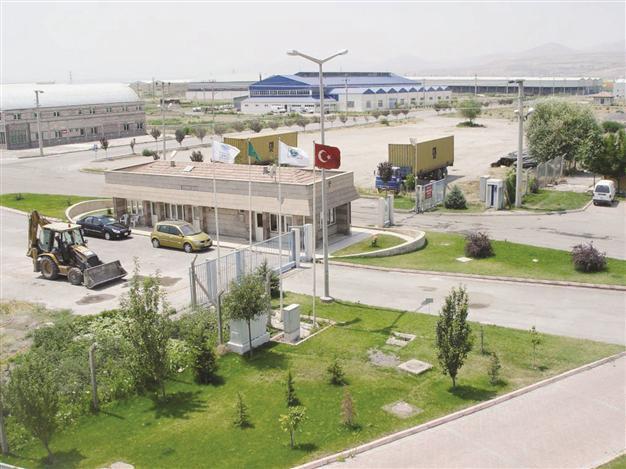İzmir, Tehran to bypass sanctions with barter
İZMİR - Anadolu Agency

It's back to barter for trade between Turkey and Iran as traders seek solutions to by-pass Western sanctions.
Western sanctions imposed on Iran that make payment transfers to or from the resource-rich nation extremely difficult have led Turkish and Iran businessmen to steer toward barter commerce.
Commerce chambers in Tehran and the Aegean province of İzmir have reached a mutual agreement to establish storehouses within free-trade zone in the cities to trade goods in exchange for other goods, İzmir Chamber of Commerce Chairman Ekrem Demirtaş told Anadolu Agency yesterday.
“All goods that are not included in sanctions but cannot be traded because of the money transfer problem will be bought and sold,” he said.
“Iran, with 75 million people, is the 18th largest economy in the world; we cannot disregard this,” he said.
The United States and its allies have imposed hard-hitting sanctions against Iran’s oil and banking sectors to choke off funding for a nuclear program which the West says is a drive to achieve a weapons capability. Demirtaş said the model had been designed with a delegate from Tehran with the ambition of raising commerce between parties.
“For example, a company from here [Turkey] will send the construction materials for its ongoing housing project in Tehran from the bonded warehouse in Tehran. Iran-origin petrochemical products at equal cost will be sold by the barter company in Turkey and the money earned will be paid to company,” he said.
Similar model eyed for trade with RussiaDemirtaş said a similar scheme was under consideration for trade with Russia, where some problems with the shuttle trade, also known as the “suitcase trade,” was experienced in the past.
The suitcase trade refers to commodity and money exchange in which Russians bring goods in suitcases and sell them in certain marketplaces in Turkey before purchasing Turkish products to sell in their own markets upon their return.
Demirtaş also warned against the potential adverse effect of the recently surfaced allegations into the involvement of corruption and bribery in Turkey’s gold trade with Iran. After the operation, they had to cancel their last trip to Iran as part of the barter project, yet the bilateral trade should be preserved amid the claims, he said. Turkey and Iran’s gold-for-gas trade is at the focus of corruption allegations that are hitting the Turkish government.
Iranian-born Azeri businessman Reza Zarrab is alleged to have conducted the trade while two former ministers, Zafer Çağlayan and Muammer Güler, and their sons, who are still under arrest, are accused of aiding him in return for bribes.
In order to bypass U.S. sanctions on Iran, Turkey has been paying for the natural gas it buys from the country by selling gold to it in return for Turkish Liras.
